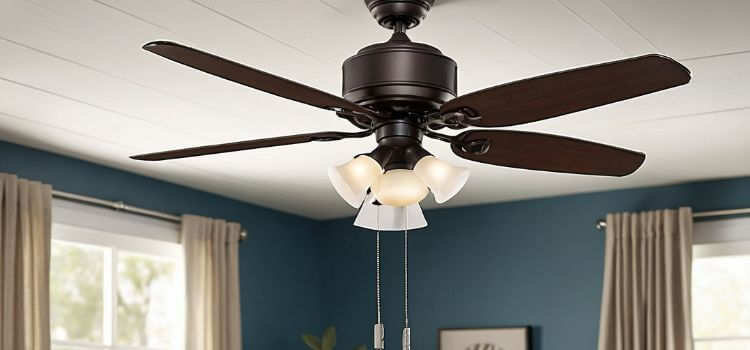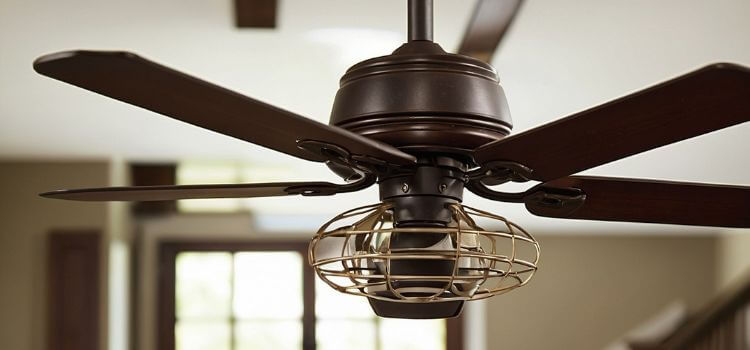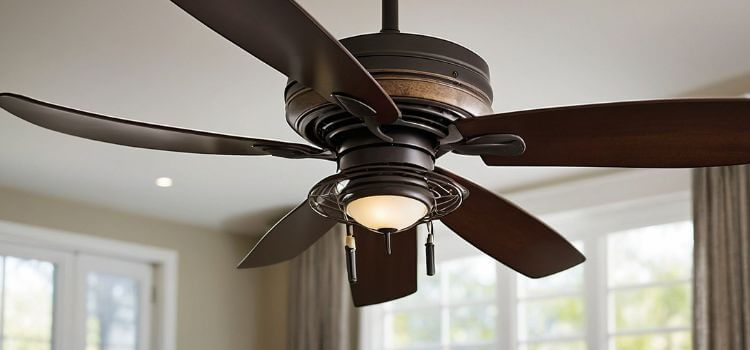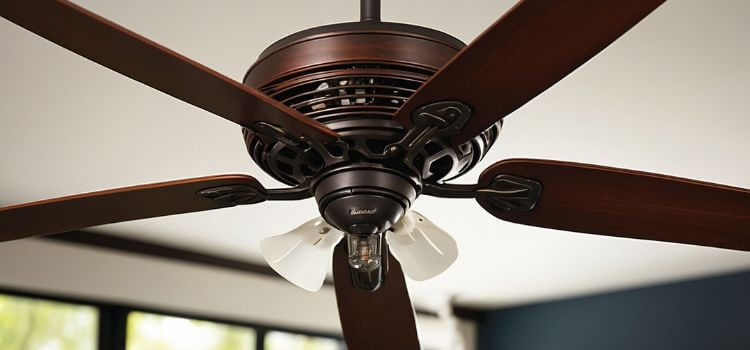As an Amazon Associate, I earn from qualifying purchases.
Ceiling fans play a crucial role in keeping our living spaces comfortable, and among the most renowned brands, Hunter stands out for its quality. Regular maintenance, including oiling, ensures your Hunter ceiling fan functions optimally.

In this guide, we’ll walk you through the step-by-step process of oiling your Hunter ceiling fan to enhance its performance and extend its lifespan.
Why Oil Your Hunter Ceiling Fan?
A well-maintained Hunter ceiling fan lasts longer and operates more efficiently. Oiling your fan is a key aspect of this maintenance, as it helps reduce friction between moving parts, minimizing wear and tear. This results in smoother operation and less strain on the motor, ultimately prolonging the life of your fan.

Tools and Materials
Before you embark on the oiling journey, ensure you have the necessary tools and materials. You’ll need a sturdy ladder, safety gear, and high-quality fan oil. Quality oil provides optimal lubrication and prevents dust buildup on your fan’s moving parts.
Safety Precautions
Safety should always be a top priority. Before starting the oiling process, turn off the power to the fan to avoid any accidents. Additionally, use a sturdy ladder and wear appropriate safety gear, such as gloves and goggles, to protect yourself during the maintenance.
Identifying the Need for Oil
Knowing when your Hunter ceiling fan needs oiling is crucial. Watch for signs such as squeaking sounds, decreased performance, or visible wear on the moving parts. Addressing these issues promptly can prevent more significant problems down the line.
Step-by-Step Guide to Oiling
Please turn off the fan and let it cool. Ensure it has been turned off for sufficient time before attempting to oil it. This prevents any accidental injuries or burns.

Locate the oiling points: Consult your fan’s manual to identify the specific oiling points. These are usually located on the motor housing or near the download.
Apply the oil and recommended quantity: Use the amount of fan oil for each oiling point. Over-oiling can lead to excessive buildup, while under-oiling may not provide sufficient lubrication.
Choosing the Right Oil
Not all oils are suitable for Hunter ceiling fans. Choose a high-quality, non-detergent motor oil or a specialized fan oil. Consider factors like viscosity and compatibility with your fan model to ensure optimal lubrication.
Frequency of Oiling
The frequency of oiling your Hunter ceiling fan depends on factors such as usage, climate, and the type of oil used. Generally, it’s recommended to lubricate your fan annually, but more frequent oiling may be necessary in certain conditions.
Troubleshooting Tips
Encounter issues during the oiling process? Common problems include difficulty accessing oiling points or excessive noise after oiling. Refer to your fan’s manual for troubleshooting tips, and if problems persist, don’t hesitate to seek professional assistance.

Maintaining Other Parts
Oiling is just one aspect of ceiling fan maintenance. Regularly clean the fan blades and housing to prevent dust buildup. Check for loose screws and tighten them to avoid unnecessary wobbling or noise.
Benefits of Regular Maintenance
Regularly maintaining your Hunter ceiling fan offers numerous benefits. Improved air circulation enhances comfort, while reduced noise and wobbling contribute to a quieter living space. Investing time in maintenance pays off in the long run.
FAQs
A: Look for signs like squeaking sounds, decreased performance, or visible wear on moving parts.
A: Using high-quality fan oil or non-detergent motor oil is recommended, considering factors like viscosity and compatibility.
A: For safety reasons, always turn off the power before oiling your Hunter ceiling fan.
A: The process typically takes around 20-30 minutes, allowing time for the fan to cool and proper application of oil.
A: Refer to the troubleshooting section in your fan’s manual, and if issues persist, consult a professional for assistance.

Conclusion,
Oiling your Hunter ceiling fan is a simple yet crucial step in ensuring its longevity and optimal performance. Regular maintenance, including cleaning and tightening, provides a more comfortable and enjoyable living space. Remember, a well-maintained fan is a quiet and efficient one.
As an Amazon Associate, I earn from qualifying purchases.
Leave a Reply